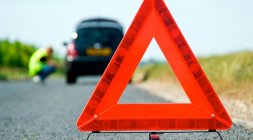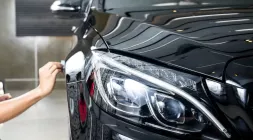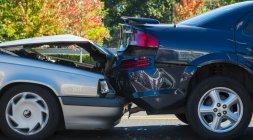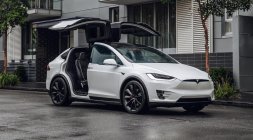Unveil how car clicks but doesn't start
One of the worst experiences when it comes to owning a vehicle is wanting it to start and it won’t. Luckily we have answers as to how to approach this problem.
A four-wheeled vehicle is definitely not a cheap item to spend your money on. That’s why a lot of car owners who worked and earned their cars really take good care of their vehicles.
One of the main reasons is that most car parts are really expensive. And in the event that something does need to be replaced, it is best addressed early.

Most early damages, if left for longer, can develop bigger problems for you and even affect other car parts. This just means more repair costs later on. So what does it mean for if your car clicks but fails to start?
Is this something that you just need to shrug off? Is this something you should be worried about? Can you resolve this on your own? Or is it better to let a professional handle it? Check out all the answers right in this article from Philcarnews.com:
1. Insufficient battery voltage
A common problem when it comes to cars refusing to start is that the battery has too low voltage. Does it open other questions like how did your battery end up drained that low? Are there any other problems in your vehicle that could be causing this? Another reason could also be a damaged car battery.
If you haven’t checked on your battery for quite some time, it may be due for an inspection. This can also be because it lacks electrolytes or has a leak. It’s best to check other elements that may be causing this problem.

A common problem when it comes to cars refusing to start is that the battery has too low voltage
2. Faulty or Damaged Starter Motor
Another common reason why your car is clicking and doesn’t start is a faulty starter motor. Starter motors have solenoids inside of them.
This solenoid gets a push the very same moment you turn on the starter. In some cases, the solenoid can get stuck or not function the way it’s supposed to. If it does, it may produce a clicking sound from the engine without completely turning over.
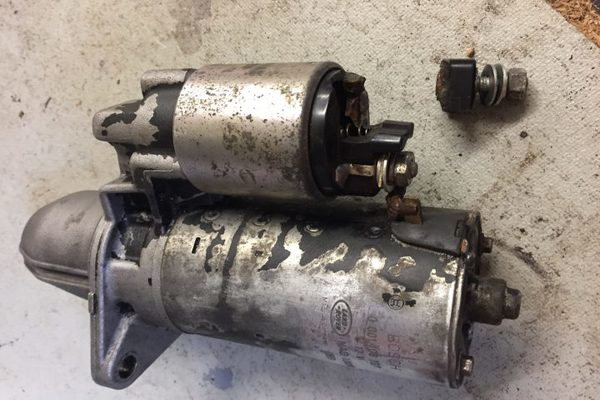
Another common reason why your car is clicking and doesn’t start is a faulty starter motor
3. Loose battery terminals
Another common reason for this problem to happen is if your battery has loose terminals. If you forgot to tighten this or your mechanic did, you may end up with a faulty vehicle.
When the battery terminals are loose, the contact between the terminals and connections are affected. Whenever you turn the key to start the vehicle, it requires a lot of power. If the contact is bad between the terminals and connectors, you’ll end up with a clicking sound but no engine start.

Another common reason for this problem to happen is if your battery has loose terminals
4. Ground cable problems
There are ground cables in the vehicle’s engine and the body. Sometimes, it can be between the body and the car battery. If any of this becomes bad, the flow of power will be restricted.
Because of that, it won’t be able to successfully crank the engine into power. This is a pretty easy problem to solve that won’t require you to be an expert.
As a solution, you can get yourself an external jumper cable. Apply it between the negative battery terminal and the car engine. See if this solves the problem for you.
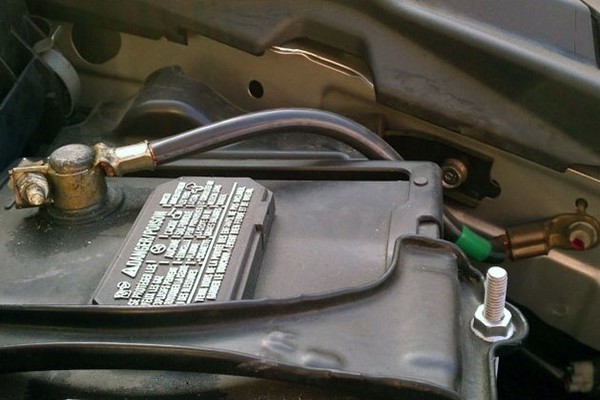
There are ground cables in the vehicle’s engine and the body
>>> Related: 5 car parts that are particularly damaged by potholes
5. Broken power cable
There is a large power cable that connects to the starter. If this was damaged or somehow became dysfunctional, there won’t be enough power to go through the cable and the starter.
That simply means the engine won’t be able to start. This particular cause is not as common as the others on this list. But if you think this could be the cause in your case, go ahead and check.
Repair and diagnostics of car clicking but not starting
Now that you have an idea of where to start with this problem, you probably want the solutions. Since the problem can come from the different parts of your vehicle, you’d have to know how to check each of them.
That is, of course, until you find out the cause of the clicking. Here are a few steps to help you out in the process:
1. Check the battery
As mentioned earlier, a problem with the car battery could lead to problems with starting the car. In fact, the car battery is one of the first things you should check out when it comes to this problem.
There are a few ways for you to do this but the easiest is by using a jump starter. You can also use the classic jumper cable. But this is evidently less convenient.

The car battery is one of the first things you should check out when it comes to this problem
>>> Related: 7 causes why your car battery fails prematurely
2. Use the jumper cable
Another usual problem is lousy ground between the engine and the body or the body and the car battery. To solve this, take out your jumper cables.
Attach one end to a clean ground area. Attach the other end on the battery’s negative terminal. If the car still doesn’t start, check your ground wire located between the body and motor.
Make sure the contact surface is clean. If it looks okay, check the cable between the body and the car battery. If the vehicle still doesn’t start after all that, go straight to number three.
3. Tap the Starter
The common problem when it comes to the starter is that the solenoid often gets stuck. If you can easily reach your solenoid, try to tap it lightly with a hammer.
But get a friend who will assist you with the other task. While you’re tapping the solenoid, have your friend turn on the ignition for you. Make sure that your hands are far away from the working parts of your vehicle.
The rotating parts may injure you and you might end up with a bigger problem from before. If your car starts with this step, your starter solenoid or starter needs to be replaced.
RECENT ARTICLES

